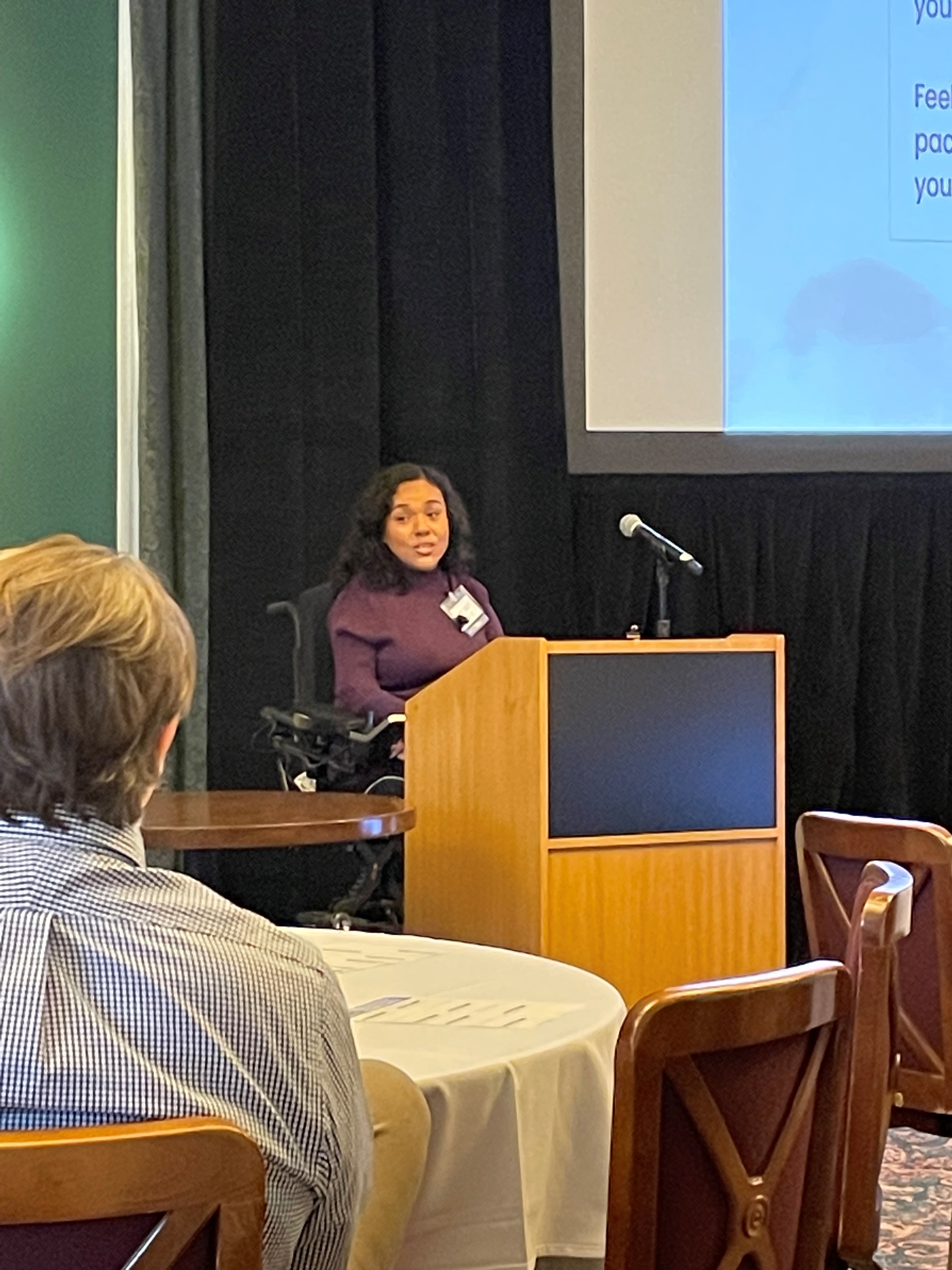Legislative Session Starts; MMA to Focus on 5 Major Issues
February 19, 2026
State lawmakers returned to St. Paul on February 17 for the second half of the 2025-2026 biennium.
March 16, 2023
More than 70 advocates gathered in person and online on March 13 for a day-long summit created to improve the transition from pediatric to adult care for youth with medical complexity.
The event was the culmination of a nearly year-long Project ECHO series made possible by a grant from the COPIC Medical Foundation. Since July, the MMA and the MMA Foundation have been hosting a series of noon-time online sessions on the topic.
"Because of clinical and technological advances, many children with medical complexity now live into adulthood,” said project medical director Tori Bahr, MD. “Yet they face numerous practical hurdles in moving from pediatric care to adult providers.”
 |
| Brittanie Hernandez-Wilson, the equity and justice director at The Arc Minnesota, kicked off the Summit with a discussion on transition care from the patient's point of view. |
The project and the March 13 summit were held to improve the competence and confidence of Minnesota adult primary care clinicians to manage youth with complex conditions, thereby increasing the capacity and number of such clinicians willing to accept new patients.
The summit included discussions on how national guidelines can be implemented into across-system transitions and how patient and parent groups can influence improved care. It also included first-hand accounts of patients who have gone through the transition from pediatric to adult care and are now advocates themselves.
“Creating successful transitions should start long before a person turns 18,” said Brittanie Hernandez-Wilson, the equity and justice director at The Arc Minnesota, an organization that promotes and protects the human rights of people with intellectual and developmental disabilities.
Several speakers noted how important communication is with this work. Amy Wilson, LICSW, ACM, a clinical social worker with the Center for Bleeding and Clotting Disorders at M Health Fairview in Minneapolis, detailed how it’s a multi-year process.
The speakers also agreed that while there is room for improvement, Minnesota is a leader in transition care. A three-member patient panel that kicked off the afternoon session complimented Minnesota care.
National speaker Peggy McManus, MHS, noted that four out of five juveniles do not get the transition care they need. McManus is president of The National Alliance to Advance Adolescent Health, a nonprofit organization dedicated to improving access to comprehensive health care and insurance coverage for adolescents. She also oversees the well-known Got Transition program.
February 19, 2026
State lawmakers returned to St. Paul on February 17 for the second half of the 2025-2026 biennium.
February 19, 2026
On the second day of the legislative session, MMA leadership was already advocating for one of its top priorities - minimizing the harm of federal changes to Medical Assistance (MA).
February 19, 2026
Legislation to prohibit the use of artificial intelligence (AI) in prior authorization requirements was heard in the House Commerce Finance and Policy Committee on February 19.